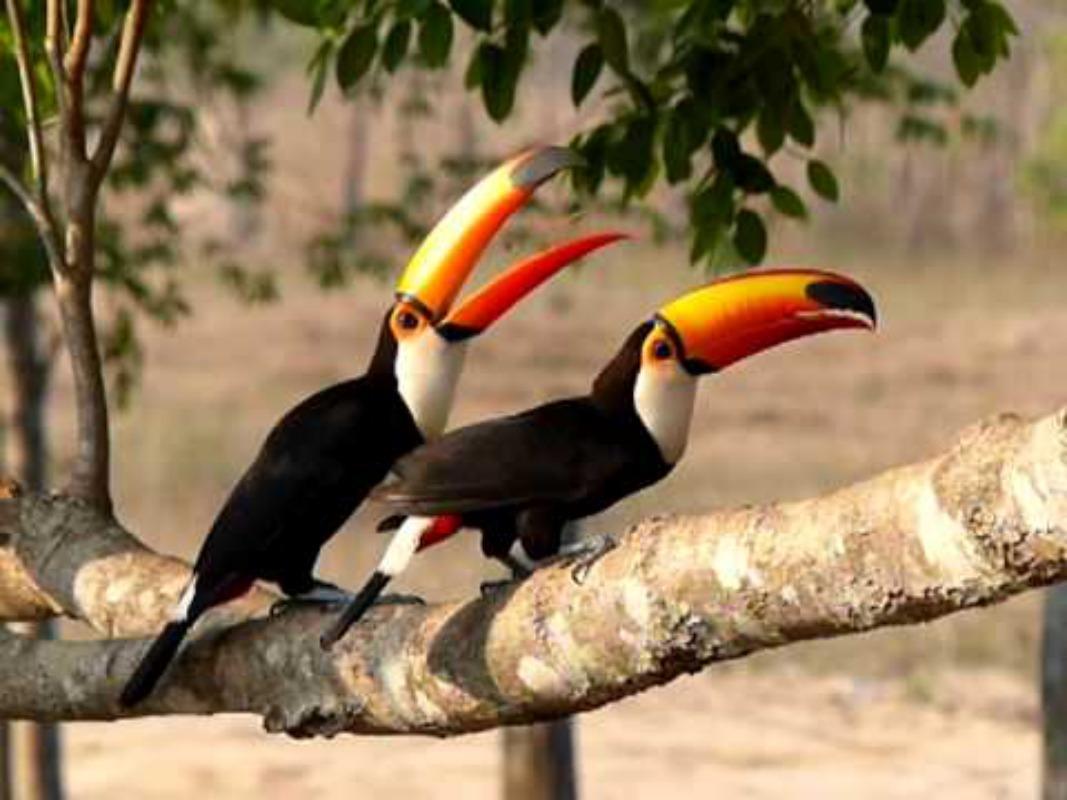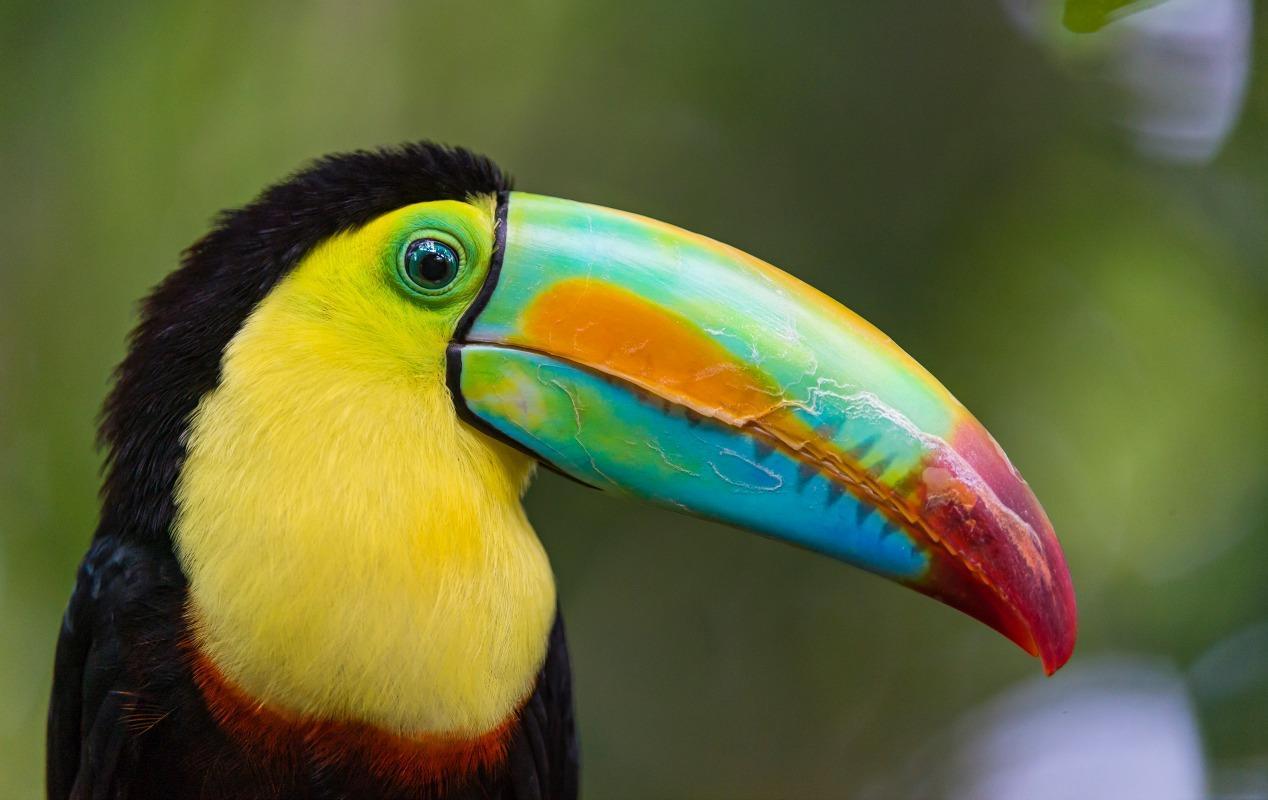Dietary Habits of the Toucan

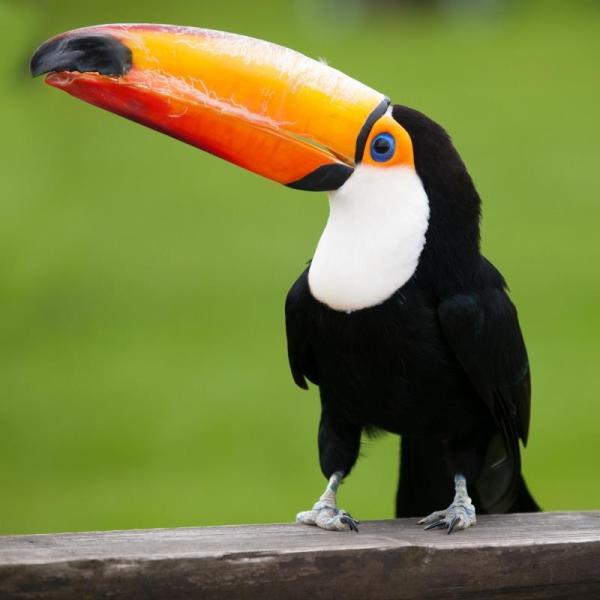
Toucans are one of the most recognizable birds in the world thanks to their characteristic and very colorful well-developed beak. Toucans are arboreal, that is, they live in trees. They also have a very long tongue, and their feet have four claws, with two claws pointing forward and two pointing backwards; they're classified together with woodpeckers.
These birds can be found throughout the American continent, from North America down to South America, except in the US and Canada. They owe their name to the word tukana, from Tupi, which was one of the native languages of Brazil.
Despite the fact that not everyone can have a toucan as a pet, and that it's very difficult to get hold of one, if you've got a toucan or know someone who does this AnimalWised article on the diet of the toucan will be worth a read. You can read the information below.
Basic diet of the toucan
Taking into account that their digestive system is based on absorption, toucans mainly feed on fruits, because whatever they consume is released as waste just a few hours later. Some fruits commonly consumed by toucans are:
- Apple
- Melon
- Peach
- Banana
- Pear
- Mango
- Kiwi
- Papaya
- Tuna
- Strawberry
Some of the most recommended vegetables for a toucan's diet are:
- Cucumber
- Tomato
- Carrot
- Corn
- Pea
- Chayote
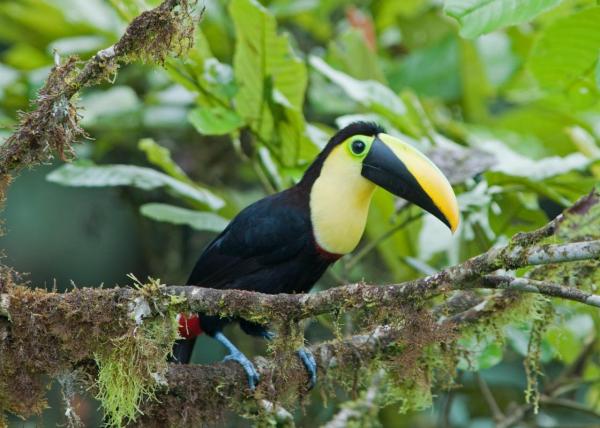
Supplementary diet of the toucan
While fruits are the main staple of their diet, toucans can also be fed wholemeal bread and the meat of mice or mealworms to supplement and balance their diet. In the wild they can consume small lizards, insects, the eggs of other birds and even pigeons. They use their beak as a pincer to reach their food.
When it comes to feeding a captive toucan, half or 60% of their food can be chopped fruit or vegetables and the other half or remaining 40% can be food supplements. You should always be wary of iron levels, because it can be harmful for the bird. Such supplementary food could be, for instance, boiled rice dumplings with vegetables.
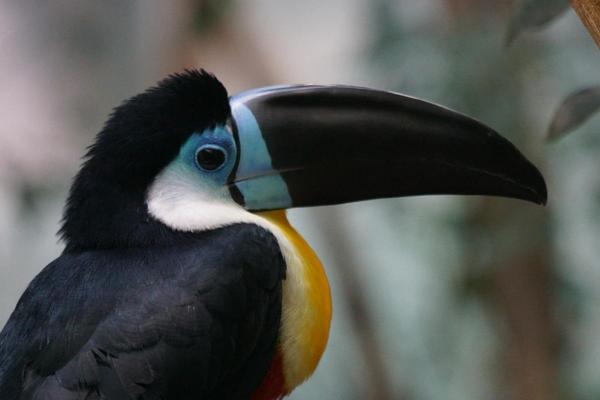
Other facts about the dietary habits of the toucan
Toucans don't eat very much. Rather, they're more than satisfied with eating two good portions of food per day. You always need to provide toucans with clean water, even though they're animals that don't drink much.
These birds don't consume much water, because the required liquids are obtained from the fruit they eat. This is one of the reasons why a toucan's diet should be based on these foods - to keep it hydrated. As such, there's no need to be alarmed if a toucan doesn't want to drink, since this is completely normal.

The toucan's digestive system
Toucans, unlike most birds, do not have crops - also called craws -, the pouch-shaped part of the alimentary tract in which food is stored. This is why they're unable to digest seeds. With this in mind, you must be careful that your bird doesn't eat seeds from any of the fruit and vegetables that you feed it, removing all the seeds beforehand. The toucan's stomach is small, which is why the food is discarded as waste so quickly after being ingested.
Earlier in this article we spoke about monitoring the levels of iron in a toucan's diet, because they're prone to accumulating iron in the liver. To control this, make sure that half the fruit consumed by the toucan is a mixture of low iron fruit such as papaya (one of this beautiful animal's favorites). Don't feed them too much of one fruit or vegetable and ensure variety in their diet.
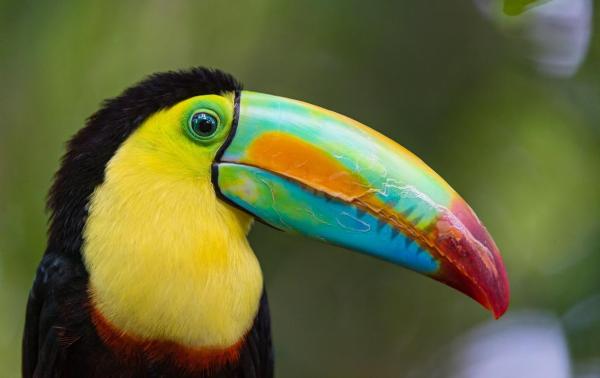
If you want to read similar articles to Dietary Habits of the Toucan, we recommend you visit our Healthy diets category.

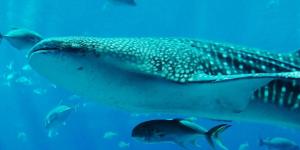
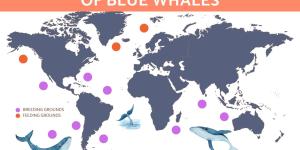
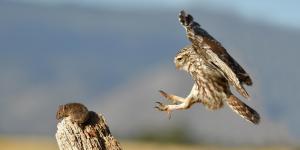



 I'd like to make a few corrections & key adjustments that need to be noted to this article.
I'd like to make a few corrections & key adjustments that need to be noted to this article.


